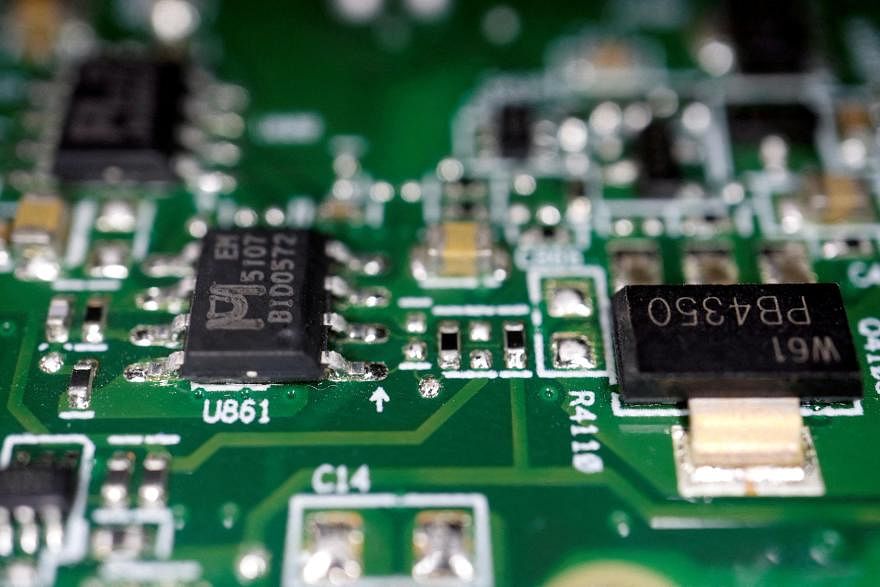JAPAN’S efforts to rebuild its semiconductor industry are getting a shot in the arm as more and more Taiwanese chip companies expand here – not only to support a new Taiwan Semiconductor Manufacturing Company (TSMC) plant but also excited about the Japanese sector’s prospects.
The influx comes amid shifting alliances and priorities in the global chip industry as the United States pushes to limit China’s progress in cutting-edge semiconductors and strengthen partnerships between its allies.
Fabless chipmaker Alchip Technologies, which specialises in customised chips known as application-specific integrated chips (Asics), is illustrative of the China decoupling trend.
In 2022, the bulk of its research and development engineers were based in China but Alchip has begun moving roles overseas, many to Japan, said a source who was briefed on the matter.
The company said it is hiring in Japan, North America and Taiwan but declined to comment further on personnel matters.
“We’re expecting Japan semiconductor market growth, we’re continuously capitalising on Japan Asic opportunities and already engaging in several good projects,” said Hiroyuki Furuzono, general manager of Alchip Japan.
At least nine Taiwanese chip firms have set up shop or expanded operations in Japan over the past two years, according to a Reuters count.
Chip design company eMemory Technology, for example, opened an office two years ago in Yokohama, which neighbours Tokyo, and has 11 employees after hiring from Japan conglomerates which once dominated the industry.
“After we built the office there we are receiving more frequent communication with the customers and they are more willing to talk in Japanese with our local people, so we see business is booming,” eMemory president Michael Ho told Reuters.
More Taiwanese chip sector firms are also looking at increasing their presence or making their first foray into Japan, said the source and another source with knowledge of the matter, adding that a weak yen has made such decisions easier.
The sources declined to be identified as the information was not public.
Proactive support
While Japan still boasts leading semiconductor material and equipment makers, it has seen its share of the global chip manufacturing market shrink to 10 per cent from around 50 per cent in the 1980s after trade tensions with the US and competition from South Korean and Taiwanese rivals.
But in recent years Japan has thrown huge sums to rebuild its chip manufacturing sector, recognising that semiconductors are vital for economic security and spurred on by the global chip shortage during the pandemic as well as encouragement from Washington.
This Saturday, TSMC will hold the opening ceremony for its first plant on the southern island of Kyushu, a chipmaking hub.
The on-track plan contrasts with the troubled construction of TSMC’s Arizona factory. It has also just announced plans for a second fab in Japan, bringing total investment in the venture to more than US$20 billion.
The chipmaking giant, Reuters has reported, sees Japan as a natural fit in terms of an industrious work culture and a government that is easy to deal with and generous with subsidies.
“The core strength of a strong semiconductor country lies not just in leading firms but in a robust ecosystem,” said Nori Chiou, investment director at White Oak Capital.
“Japan’s proactive government support, marked by substantial subsidies and minimal political interference, sets it apart, fostering superior progress compared to many other countries.”
In addition to TSMC, the Japanese government-backed chip foundry venture Rapidus plans to mass produce chips on the northern island of Hokkaido from 2027. Taiwan’s Powerchip is also seeking government subsidies to set up a US$5.4 billion foundry in Japan.
Taiwanese firms boosting their presence in Japan include TSMC-backed Global Unichip (GUC), another fabless designer of Asics, which said it is attracted by both the engineering talent and business opportunities.
Additionally, Materials Analysis Technology (MA-tek) , which inspects semiconductor materials and cites TSMC as its biggest client, opened a new lab in Kyushu late last year. Semiconductor equipment and maintenance firm Finesse Technology, another key TSMC contractor, is building a factory in Japan.
TSMC supplier Marketech is also expanding in Japan, the sources said. Marketech declined to comment.
“The trend will continue for the foreseeable future as part of decoupling,” said Takamoto Suzuki, head of China economic research for trading house Marubeni. He warned, however, that Japan may not have sufficient young science industry workers to meet demand.
The number of workers in Japan’s chip-related businesses has declined by around a fifth over the last roughly two decades, although the government and universities have ramped up efforts to encourage students into the field. REUTERS



